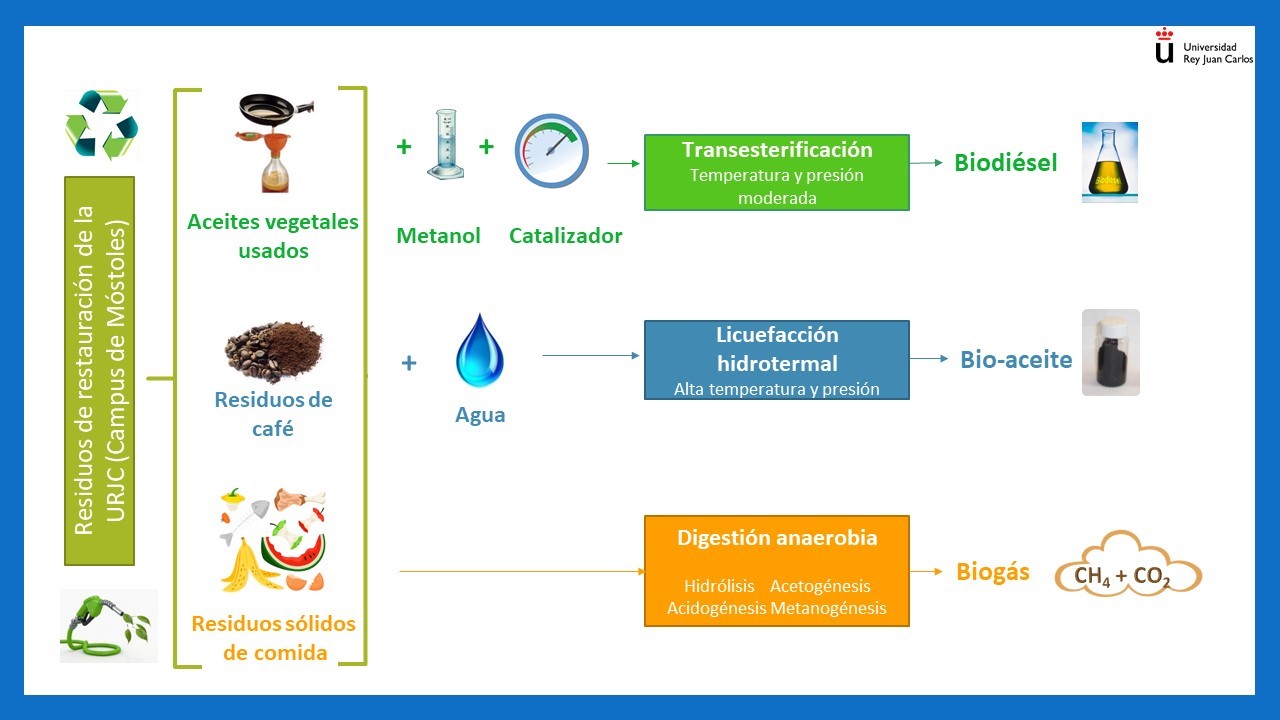Lhe current environmental problem requires responsible behavior in waste management and the transformation of these into products of interest. Through this proposal, it is intended to promote essential environmental training in all educational fields and, in a particular and more advanced way, in the technical degrees taught at universities, as is the case of the degrees taught at ESCET. This initiative is strongly aligned with multiple Sustainable Development Goals, such as SDGs 4, 6, 7, 9, 12 and 13.
Starting from the food waste usually generated in the university's catering service, three biofuel production processes are presented, using both teaching and research facilities available on the Móstoles Campus.
From used vegetable oils, biodiesel has been generated through a transesterification process with methanol. Through a hydrothermal liquefaction process using coffee residues, a bio-oil was produced that can be used as a liquid biofuel after being treated. Finally, biogas was obtained through anaerobic digestion of the organic remains obtained during the preparation of the meals.

Diagram of the processes carried out in the teaching innovation project presented.
The activity has been carried out by the postdoctoral researcher Alejandra Sánchez-Bayo and professors L. Fernando Bautista and Gemma Vicente, through a project directed by the latter and funded by ESCET. To do this, they carried out these biofuel production processes from food waste in laboratories. The processes were recorded for later dissemination through a thirty-minute explanatory video.
The complete activity was carried out in online format in the Basic Engineering Processes subject, of the Degree in Energy Engineering, and consisted of the following parts: (1) Dissemination of the training video (2), Debate on the knowledge shown , (3) Educational gamification of content, (4) Satisfaction survey. After the activity, the students showed a high degree of motivation, interest and satisfaction with the activity carried out. In addition, the activity was adapted to be carried out in the XX Science Week of the Community of Madrid. In this case, the attendees showed great interest in the facilities and processes explained.
Thanks to the interest generated, it is expected to continue disseminating this activity in the second quarter of the 2020-2021 academic year in other subjects of different degrees, as well as in the next academic years.
The organizers appreciate the support received by ESCET, through the Call for the distribution of 2020 budgets for Teaching Innovation Activities (Project Teaching Innovation in Restoration Waste Management at the Rey Juan Carlos University on the Móstoles Campus).

